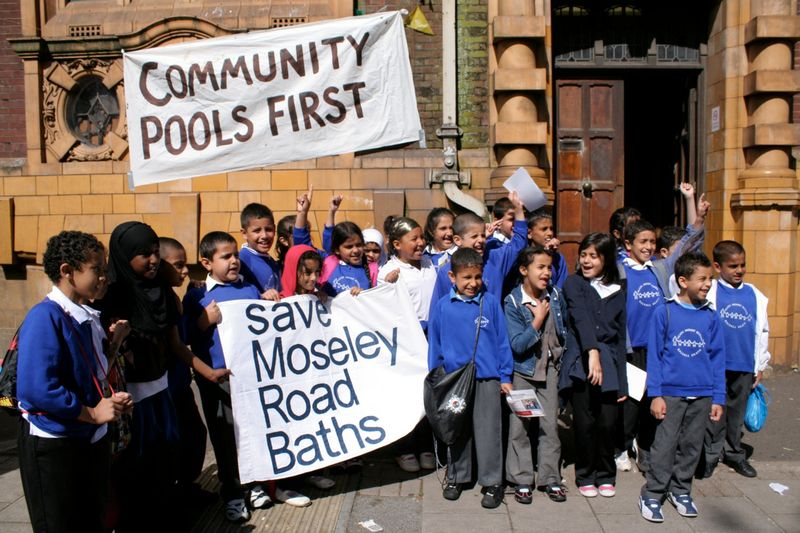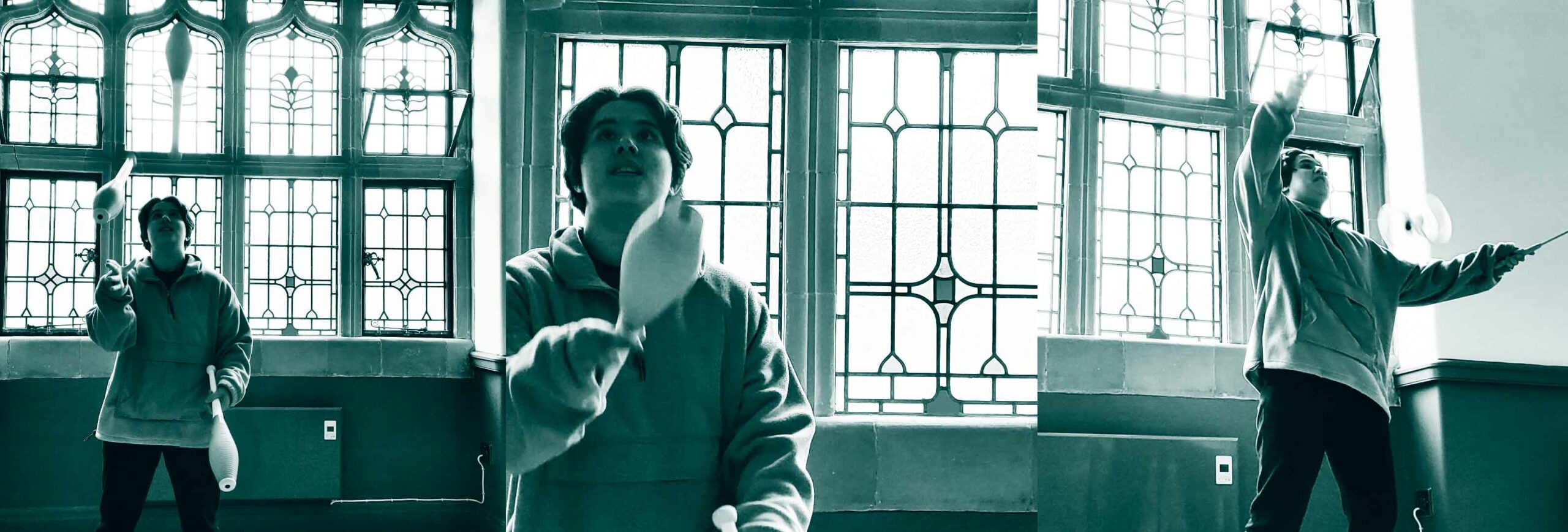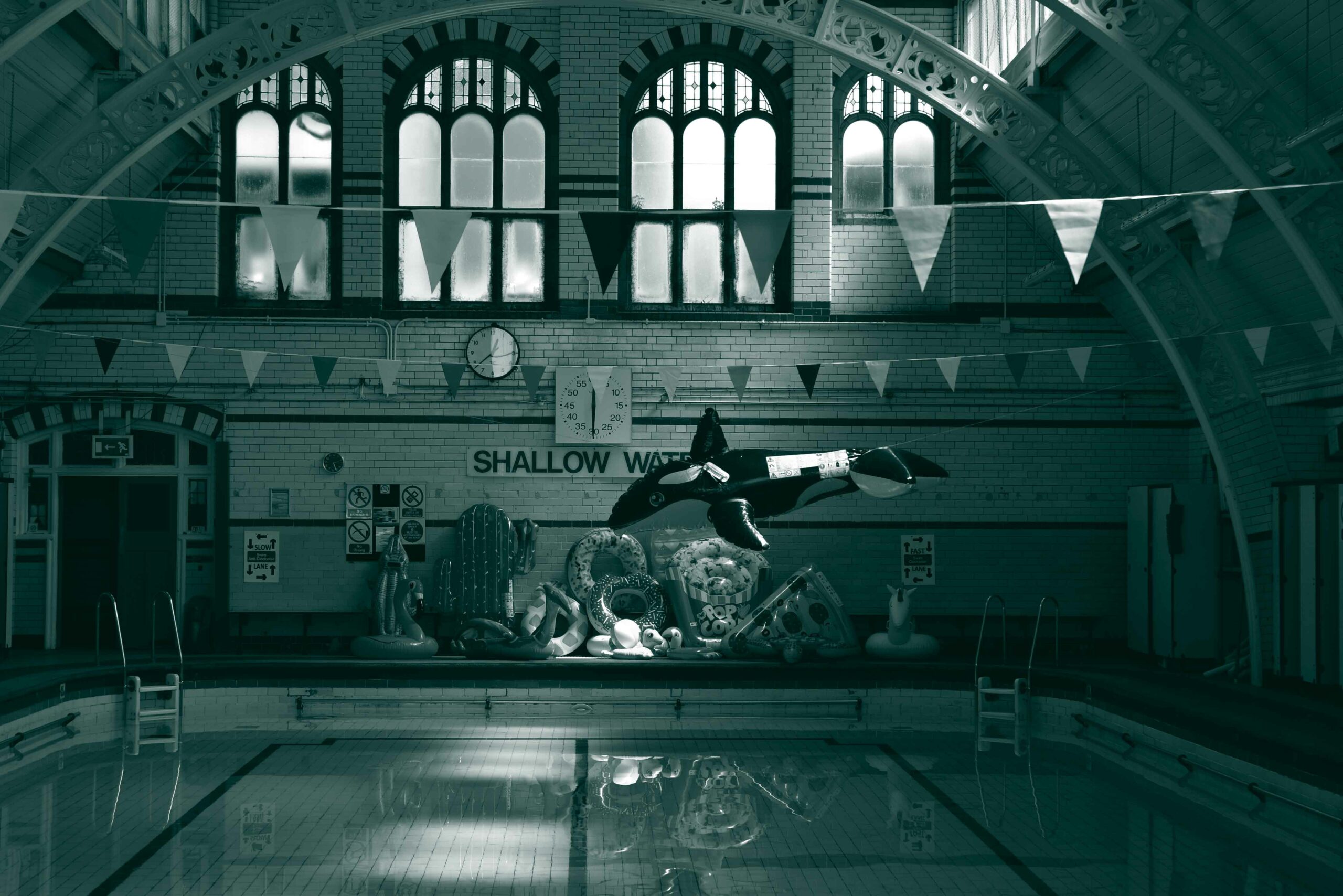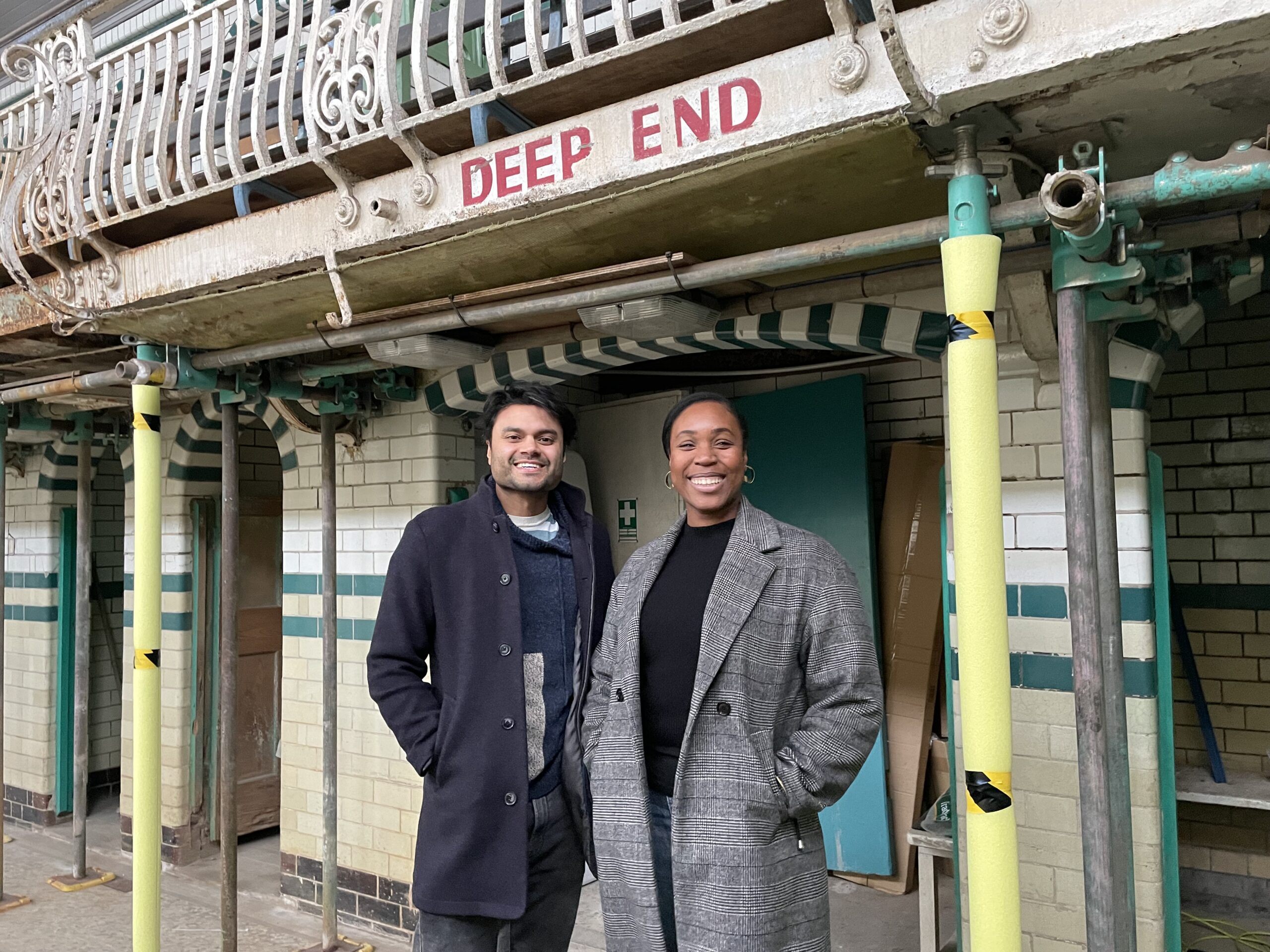Lighting Up in celebration of Diwali, Moseley Road Baths will have lights installed around the pool transforming the space as the light and water interact. The lights will be in place from Friday 25 October –Sunday 27 October. Swimmers of all ages will have the opportunity to experience the pool in a new way. No membership is required for Moseley Road Baths, sessions are pay as you go with free Be Active sessions for Birmingham residents and children under 4.
During Diwali, families and friends share sweets and gifts. There is also a strong belief in giving food and goods to those in need. Colourful Indian sweets are one of the most recognisable parts of Diwali celebrations, though festive dishes include a range of rich savoury and sweet dishes. While eating out is popular, families will mostly make food at home with all generations taking part in preparations for when guests arrive to exchange gifts and watch fireworks. The festival of Diwali usually falls between mid-October and mid-November as determined by the Hindu lunar calendar. Diwali itself is traditionally celebrated on the festival’s third day, which this year falls on Saturday 26 October. Celebrated by Hindus, Jains, Sikhs and some Buddhists, Diwali has many origin stories and is mentioned in ancient Sanskrit texts. FOOD &SWEETS Those celebrating the festival often light traditional earthen divas(candles) and decorate their houses with colourful Rangoli artworks– patterns created on the floor using coloured rice or powder. In Hinduism Diwali is the day Rama’s army of good defeated the demon king Ravana’s army of evil. Jainism celebrates Diwali inobservance of “Mahavira Nirvana Divas”, the physical death and final nirvana of Mahavira. In Sikhism Diwali marks three events: the founding of the city of Amritsar in 1577, the release of Guru Hargobind from the Mughal prison, and the day of Bhai Mani Singh’s martyrdom in 1738. Buddhists in Nepal celebrate Diwali by offering prayers to Lakshmi.







